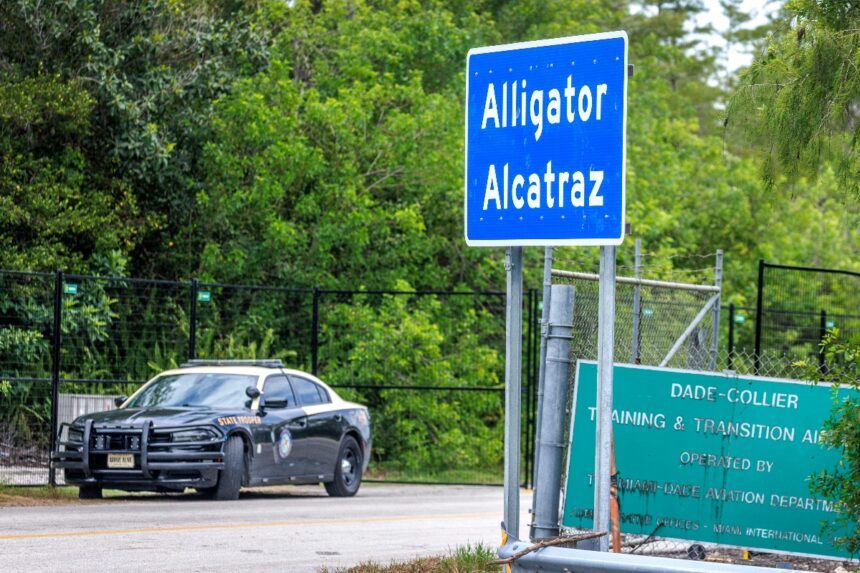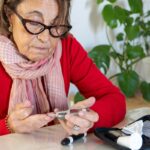On July 18, civil and medical groups denounced the unsanitary conditions of the immigration detention center known as Alligator Alcatraz, located in the Florida Everglades.
The camp, which opened on July 1, 2025, has resulted in at least six people being hospitalized due to extreme heat, poor hygiene and exposure to dangerous wildlife-such as alligators, pythons and thousands of mosquitoes.
What is “Alligator Alcatraz”?

Built in just one week on a remote airstrip in the Everglades, Alligator Alcatraz can accommodate up to 3,000 people, with an annual state investment of US$450 million.
According to authorities such as Governor Ron DeSantis and President Donald Trump, the location and hostile conditions – replete with mosquitoes, extreme heat and wild animals – serve a “deterrent” purpose against undocumented immigration.
Reports of inhumane conditions

Several migrants and public figures describe the opposite reality of Alligator Alcatraz to official standards:
No access to water or showers; portable toilets collapse and flood with sewage.
Only one meal a day, which, according to allegations, is sometimes contaminated with maggots.
24/7 exposure to bright lights, high temperatures, giant mosquitoes and dangerous wildlife.
Cuban artist Leamsy La Figura, detained there, told CBS Miami:
There's no water to shower... the food had worms... the mosquitoes are like elephants
Leamsy La Figura
Official response and repercussions

The Department of Homeland Security(DHS) and the State of Florida deny the allegations.
They argue that Alligator Alcatraz meets federal standards, provides medical care, and no deaths were recorded on site.
Still, Democratic lawmakers, local authorities such as Miami-Dade Mayor Daniella Levine-Cava, and indigenous leaders – such as the Miccosukee tribe – are demanding access to the site, transparency and independent oversight.
Activists and NGOs highlight the use of state and federal funds – including FEMA.
Deviations from hurricane preparations and construction without environmental review.
This has given way to lawsuits by native groups and environmental institutions.
For more information, visit QuéOnnda.com.























